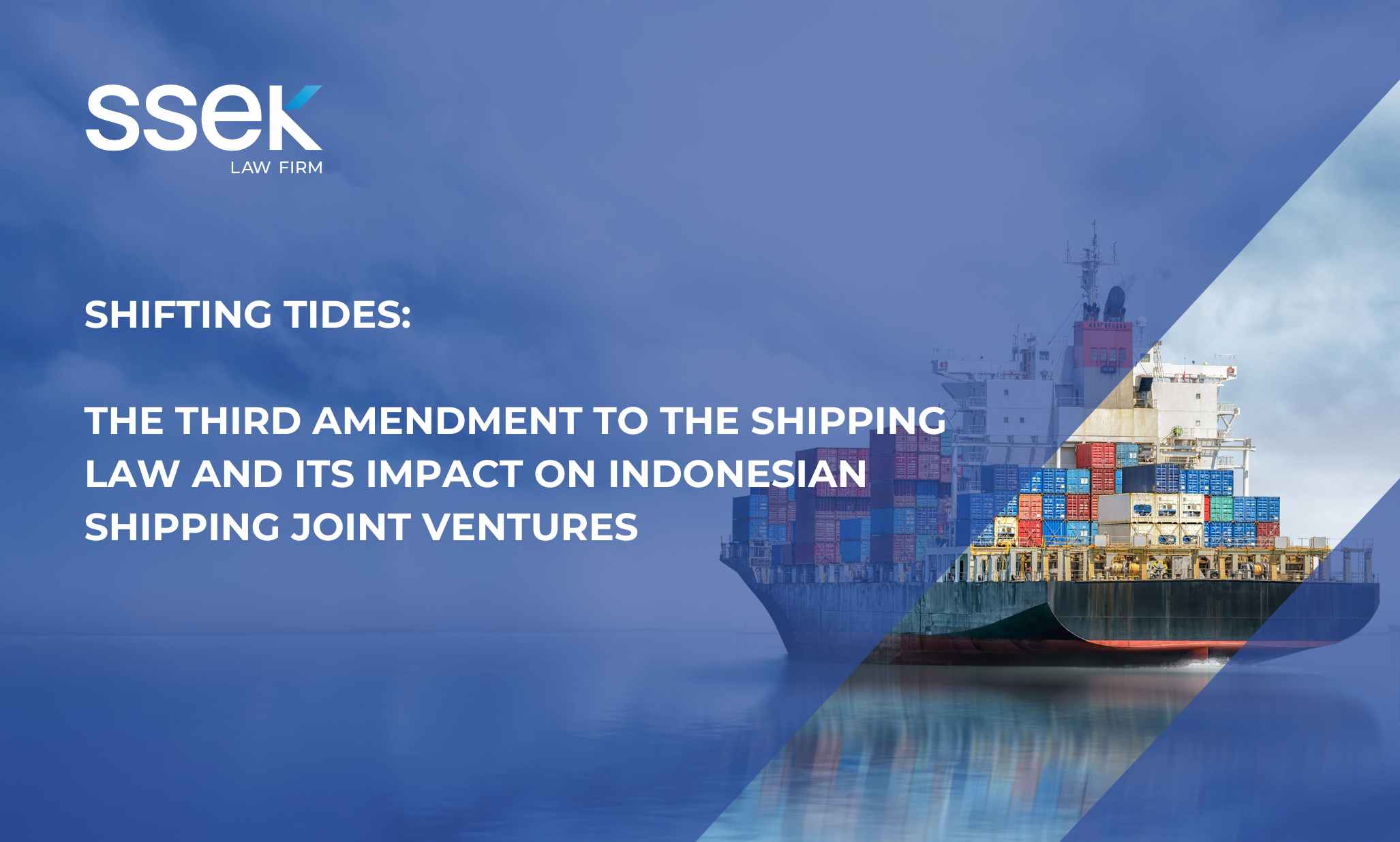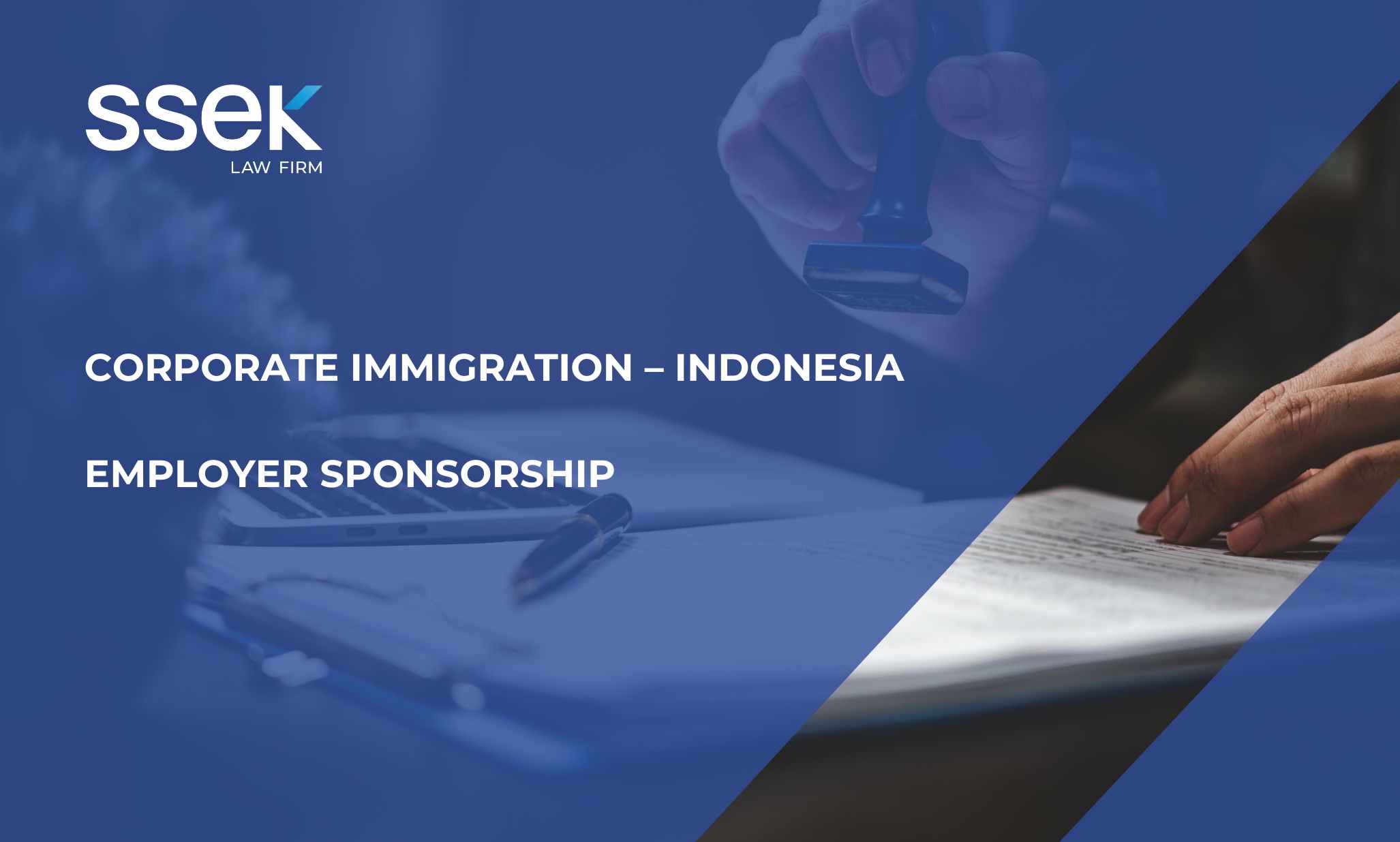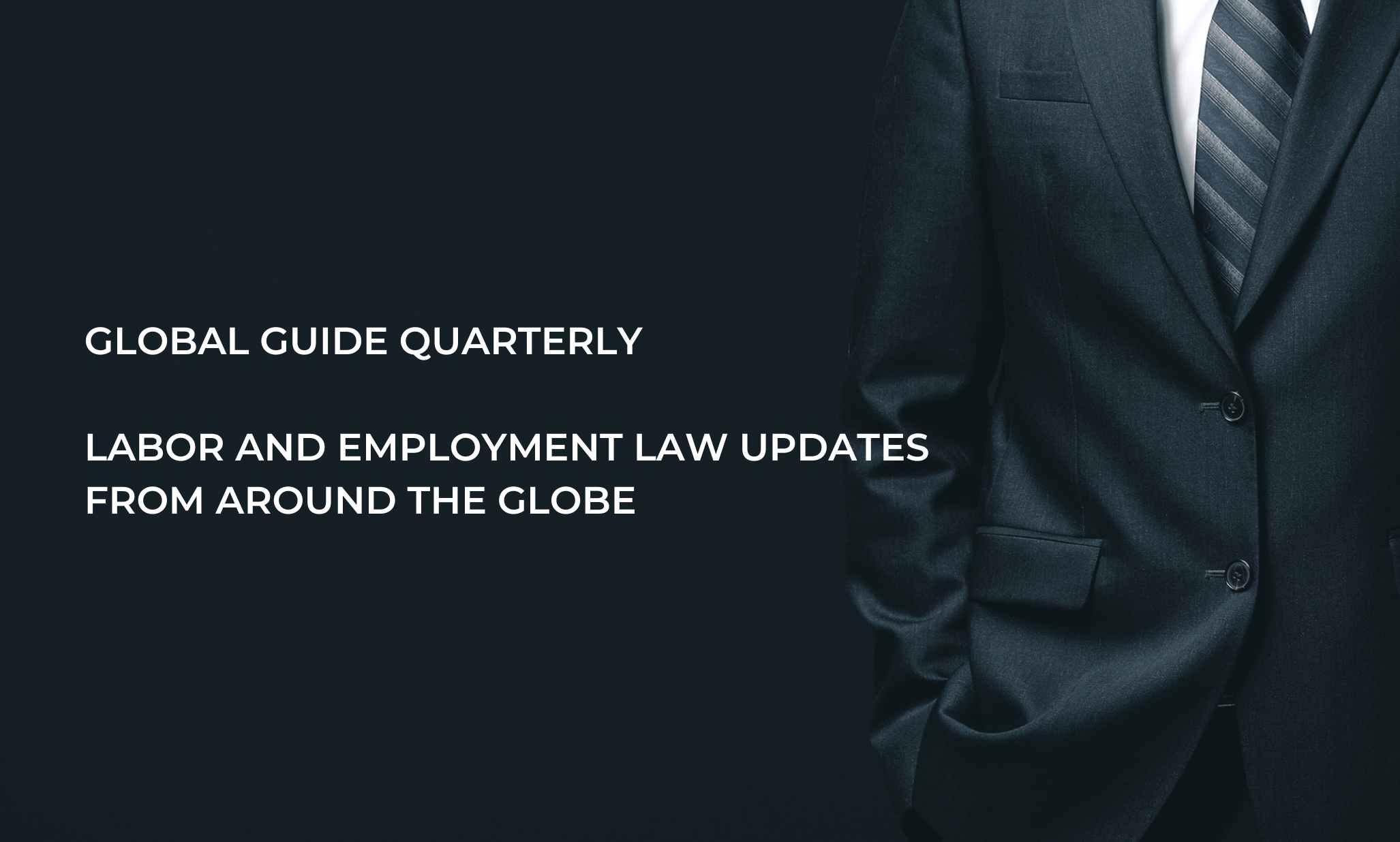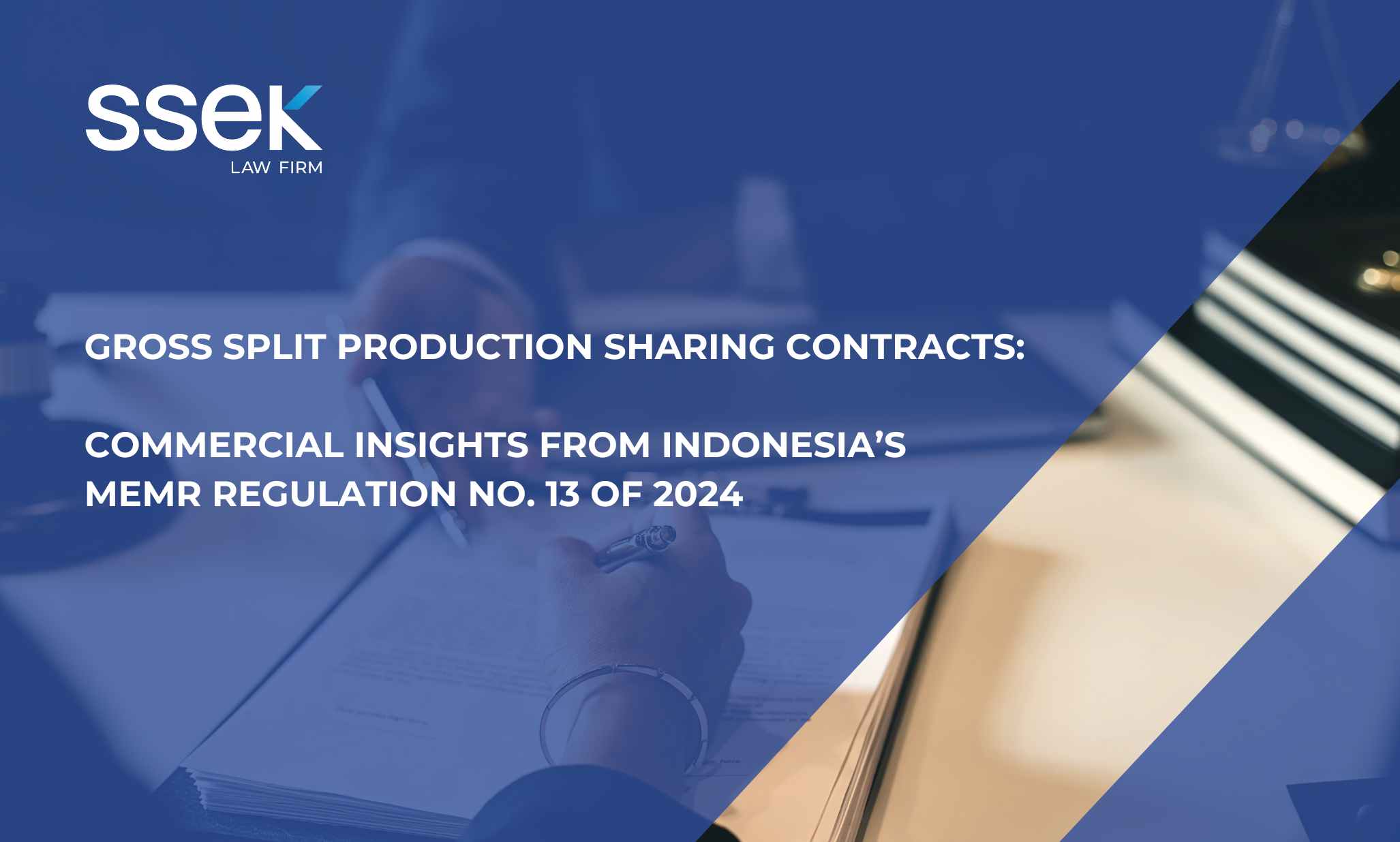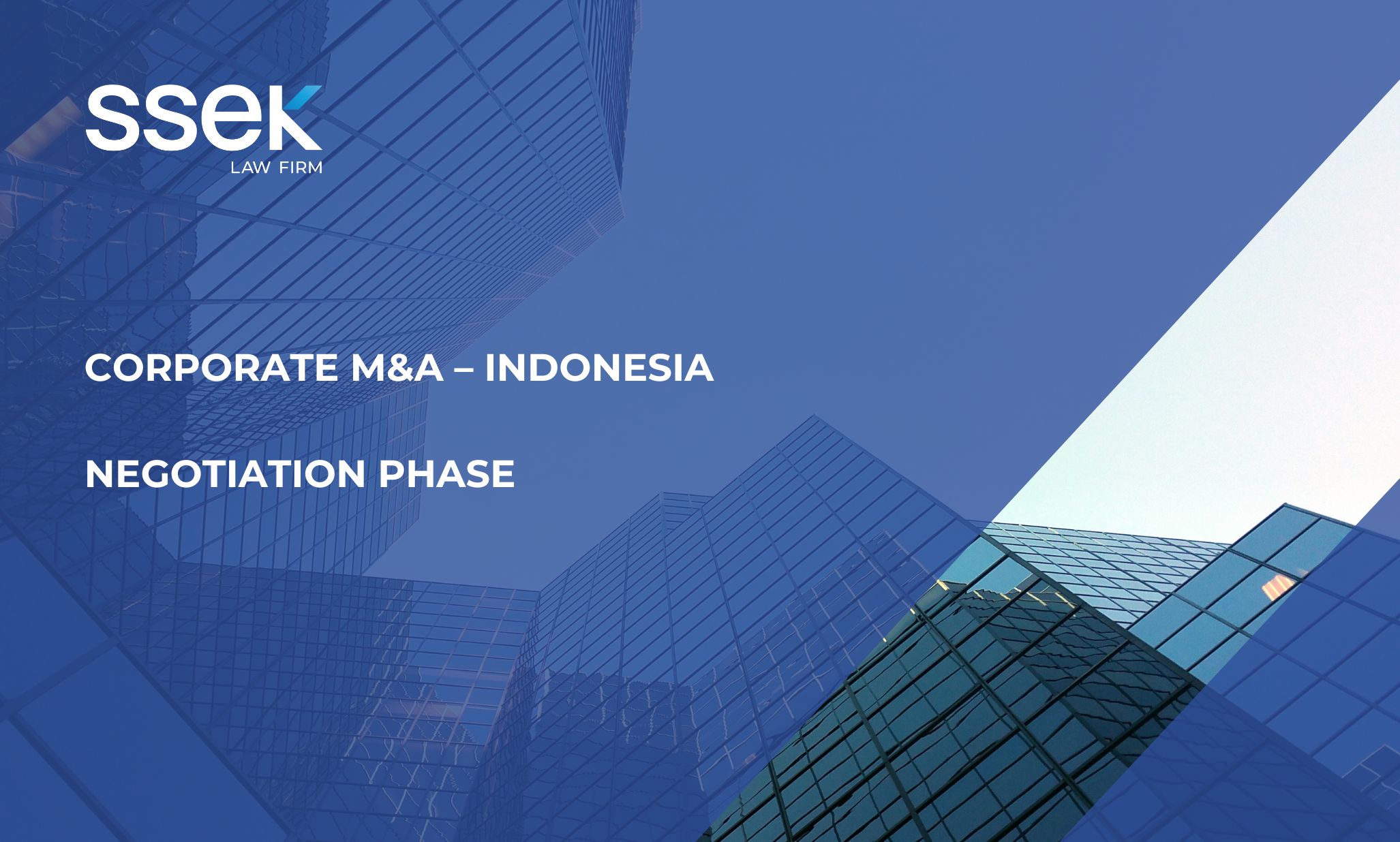

Following the enactment of Government Regulation No. 34 of 2021 regarding the Utilization of Foreign Workers (February 2, 2021) (\"GR 34/2021”), the Minister of Manpower (\"MOM”) has issued MOM Regulation No. 8/2021 regarding Implementing Regulation for Government Regulation No. 34 of 2021 regarding the Utilization of Foreign Workers (\"MOM Reg. 8/2021”), which entered into force on April 1, 2021. This new regulation revokes and replaces MOM Regulation No. 10 of 2018 regarding Procedures for the Utilization of Foreign Manpower (July 11, 2018) (\"MOM Reg. 10/2018”).
This article highlights some of the major changes under MOM Reg. 8/2021.
I. Work and Immigration Permit for Foreign Workers
Employers in Indonesia are required to obtain a work permit for foreign workers. The employer must apply for the work and immigration permit through the TKA Online system (https://tka-online.kemnaker.go.id/), which is managed by the Ministry of Manpower.
According to Article 3 (1) of MOM Reg. 8/2021, employers that can employ foreign workers include:
a. government institutions, foreign state representatives, and international bodies;
b. foreign trade representative offices, foreign company representative offices, and foreign news agencies conducting activities in Indonesia;
c. foreign private companies conducting business in Indonesia;
d. legal entities in the form of a limited liability company (\"Company”) or foundation established under Indonesian law or foreign business entities registered with authorized institutions;
e. social, religious, educational, and cultural institutions;
f. entertainment management service businesses (usaha jasa impresariat); and
g. business entities allowed by law to employ foreign workers.
An exception applies to a Company in the form of an individual legal entity, which, under MOM Reg. 8/2021 is not allowed to employ foreign workers. This exception was not found in MOM Reg. 10/2018. Also note that it is now possible for companies that meet the criteria of micro and small businesses to establish an individual legal entity in the form of a Limited Liability Company (for details, see Law No. 40 of 2007 regarding Limited Liability Companies, as amended by Law No. 11 of 2020 regarding Job Creation).
Under MOM Reg. 8/2021 the work permit for foreign workers in Indonesia is called an RPTKA Approval (Pengesahan RPTKA), issued by the MOM through the TKA Online system. The RPTKA Approval further serves as the basis to grant both the visa and stay permit for foreign workers. While an approved RPTKA was also the work permit for foreign workers under MOM Reg. 10/2018, it did not serve as the basis to grant immigration permits. Instead, the employer had to apply separately for a Notification (Notifikasi), which served as the basis to grant a Limited Stay Visa (Visa Tinggal Terbatas or \"VITAS”). The VITAS further served as the basis to grant a Limited Stay Permit (Izin Tinggal Terbatas or \"ITAS”) for work purposes.
Generally, under the new regime any employer that intends to employ foreign workers must obtain an RPTKA Approval. An exception applies in cases where a foreigner is (i) a member of the Board of Directors (\"BOD”) or Board of Commissioners (\"BOC”) and has a certain share ownership in the company; (ii) a diplomatic or consular staff member at a foreign state representative office; or (iii) required by the employer in connection with a production activity that has ceased due to any emergency, vocational activities, a tech-based startup, business visits, or research for a set period of time.
Specifically for tech-based startups and vocational training, the Government has eased the licensing process for employing foreign workers by waiving the RPTKA Approval requirement. This waiver was not included in the previous MOM Reg. 10/2018. However, the exemption lasts for no more than three months, after which these exempted employers must apply for RPTKA Approval for their foreign workers. The application must be submitted at least two weeks before the expiration of the work period of the foreigner in question (as stated in the foreign worker employment statement letter issued in place of the RPTKA Approval).
II. Application Stages
1. RPTKA Documents Submission
Under MOM Reg. 8/2021, the process to employ foreign workers starts with the submission of an application through the TKA Online system. The application is addressed to the Director of Foreign Manpower Utilization Management (Direktur Pengendalian Penggunaan Tenaga Kerja Asing) if fewer than 50 foreign workers are to be employed; otherwise, it is addressed to the Director General of Manpower Placement Guidance and Expansion of Work Opportunity (Direktur Jenderal Pembinaan Penempatan Tenaga Kerja dan Perluasan Kesempatan Kerja). Several pieces of information must be included and documents uploaded for the application (for details, see Articles 9 - 12 of MOM Reg. 8/2021).
2. RPTKA Appropriateness Assessment
If the application is declared complete and correct, the MOM will then conduct an appropriateness assessment of all the documents submitted by the employer (\"RPTKA Assessment”). The assessment will be conducted through online video call. If the assessment concludes that all the requirements have been met, the MOM will issue the RPTKA Assessment result (\"Assessment Result”) in no more than two working days.
3. Submission of Foreign Worker Personal Data
Either simultaneously with the submission of the RPTKA documents or once the Assessment Result is issued, the employer is required to submit the personal information and documents of the foreign workers through the TKA Online system (for details, see Article 15 (1) of MOM Reg. 8/2021). These documents and personal information will be verified by the MOM within no more than two working days.
4. DKPTKA Payment and RPTKA Approval
If the information and documents are declared complete and correct, the MOM will issue a payment notification letter for the Foreign Workers Compensation Fund (Dana Kompensasi Penggunaan Tenaga Kerja Asing or \"DKPTKA”). The amount of payment is US$100 for each position per person monthly and shall be made to a bank appointed by the Ministry of Finance or the local government. Payment of DKPTKA is waived for (i) government institutions, (ii) foreign state representatives, (iii) international bodies, (iv) social institutions, (v) religious institutions, and (vi) certain positions in educational institutions.
Once the employer has made the DKPTKA payment, the MOM will issue the RPTKA Approval and send the data online to the Ministry of Law and Human Rights (\"MOLHR”) for further processing of the visa and stay permit. The RPTKA Approval will then serve as a recommendation to obtain the visa and stay permit for the foreign workers.
Comparison to MOM Reg. 10/2018
While MOM Reg. 8/2021 provides a single process to obtain the work and immigration permits, under MOM Reg. 10/2018 there were two separate applications that had to be completed by employers. Under MOM Reg. 10/2018, to obtain an RPTKA as a work permit the process also started with submitting certain information and documents through the TKA Online system. Once the information and documents were declared complete and correct, the MOM would conduct the RPTKA appropriateness assessment and issue an approved RPTKA in no more than two working days if all the requirements were deemed fulfilled.
Separately, the employer would also apply for a Notification to obtain a VITAS and ITAS as immigration permits. The process also started with submitting the personal information and documents of the foreign workers through the TKA Online system for verification by the MOM. Once the information and documents were declared complete and correct, the MOM would issue a Notification in no more than two working days. Following the Notification, the employer was required to pay the DKPTKA with a maximum of one working day. The MOM would then send the Notification and DKPTKA payment evidence to the MOLHR for further processing of the VITAS and ITAS.
III. Types of RPTKA Approval and Validity Period
Pursuant to MOM Reg. 8/2021, there are four types of RPTKA Approval: (i) Temporary, (ii) Over 6 Months, (iii) Non-DKPTKA, and (iv) Special Economic Zone (Kawasan Ekonomi Khusus or \"SEZ”). The Temporary RPTKA Approval is valid for no more than 6 months and is not extendable. The Over 6 Months and Non-DKPTKA RPTKAs are granted for no more than 2 years and are extendable, while the SEZ RPTKA is granted for no more than 5 years and is also extendable. Specifically, the SEZ RPTKA for a member of a company\'s BOD and/or BOC is granted once and is valid as long as the foreign worker in question is employed.
MOM Reg. 8/2021 provides that an RPTKA Approval must be extended at least 30 days prior to its expiration.
As a comparison, MOM Reg. 10/2018 introduced three types of RPTKA: (i) RPTKA, (ii) Emergency RPTKA, and (iii) Temporary RPTKA. The general RPTKA was valid for a period in accordance with the relevant employment agreement. The Emergency RPTKA was granted for no longer than 1 month and was not extendable, while the Temporary RPTKA was granted for no more than 6 months and was also not extendable. While MOM Reg. 10/2018 provided some exemptions for DKPTKA payment, it did not specifically regulate non-DKPTKA RPTKA.
It should be noted that the Emergency RPTKA under MOM Reg. 10/2018 is now abolished, as foreigners who need to work in Indonesia on an emergency basis may simply apply for the relevant visa available for urgent/emergency matters.
IV. Amendment of RPTKA Approval
Under both MOM Reg. 8/2021 and MOM Reg. 10/2018, employers may apply for an RPTKA Approval/RPTKA amendment before the expiration of the validity period. The main difference is in the requirement for an appropriateness assessment of the application. MOM Reg. 8/2021 provides that if the submitted information and documents are declared complete and correct, the amendment to the RPTKA Approval will be issued in no more than two working days. In this case, no appropriateness assessment is needed. Under MOM Reg. 10/2018, an appropriateness assessment was needed prior to the issuance of an approved RPTKA amendment.
V. Guidance for Employers
MOM Reg. 8/2021 expands the forms of guidance that may be provided by the Ministry of Manpower to employers. According to Article 45 (2) of MOM Reg. 8/2021, guidance for employers shall be in the form of:
a. socialization of procedures for the employment of foreign workers in accordance with the provisions of laws and regulations;
b. counseling on obligations and prohibitions in the employment of foreign workers;
c. preparation of job market analysis related to the employment of foreign workers;
d. monitoring and evaluation of the RPTKA Approval related to the suitability of foreign workers for the work positions in question; and/or
e. monitoring and evaluation of the implementation of foreign workers mentoring (pendampingan).
While MOM Reg. 10/2018 also provided for guidance for employers, this guidance was limited to (i) socialization of laws and regulations and procedures related to the employment of foreign workers; and/or (ii) counseling on rights and prohibitions related to the employment of foreign workers.
VI. Supervision
According to MOM Reg. 8/2021, an Employment Supervisor (Pengawas Ketenagakerjaan) of the Ministry of Manpower may issue a Memorandum of Examination (Nota Pemeriksaan or \"Memo”) if it finds any alleged violations of foreign workers employment norms by an employer. The Memo must be enforced by the employer in question or a second Memo will be issued. If compliance is still lacking following the second Memo a notification letter on the imposition of administrative sanctions will be issued to the employer (see below for details on administrative sanctions).
Though MOM Reg. 10/2018 also stipulated the use of the Memo as a form of supervision, it provided three stages for conducting supervision:
(i) preventive education, which is preventive efforts through the dissemination of norms, technical advice and mentoring;
(ii) repressive non-judicial, which is non-litigation efforts in the form of a Memo and/or a statement of ability to fulfill the provisions of laws and regulations; and/or
(iii) repressive judicial, which is forced efforts through the courts involving an investigation by the Employment Supervisor as the Civil Servant Investigator (Penyidik Pegawai Negeri Sipil).
While preventive education is included in the guidance for employers under MOM Reg. 8/2021 (see above), the repressive judicial stage has been dropped.
VII. Administrative Sanctions
According to Article 49 (1) of MOM Reg. 8/2021, administrative sanctions shall be imposed on employers for the following violations of foreign worker employment norms:
a. no approved RPTKA by the MOM or authorized officials;
b. no RPTKA Approval for foreign workers being employed by another employer;
c. no RPTKA Approval for foreign workers employed by a tech-based startup or vocational activities provider for more than the maximum period of three months;
d. failure to facilitate Indonesian-language education and training for foreign workers;
e. failure to enroll foreign workers in the national social security or insurance program;
f. does not report annually to the MOM regarding the implementation of foreign workers employment, education and job training, and transfer of technology and expertise;
g. does not report to the MOM on the implementation of foreign workers employment for temporary work after the expiration of the employment agreement;
h. does not report to the MOM an employment agreement that has expired or been terminated before the expiration of the term of the agreement;
i. employing foreign workers not in accordance with the RPTKA Approval;
j. employing dual-position foreign workers in the same company;
k. employing foreign workers in personnel management positions; and/or
l. failure to pay the DKPTKA for each employed foreign worker.
MOM Reg. 8/2021 stipulates three types of administrative sanction: (i) fines; (ii) temporary suspension of RPTKA Approval application; and/or (iii) revocation of RPTKA Approval. Fines may be imposed for the violations in points (a) to (c) above. Temporary suspension of RPTKA Approval application may be imposed for the violations in points (d) to (h) above, as well as for failing to pay imposed fines within two weeks. And the RPTKA Approval may be revoked for the violation in points (i) to (l) above, and for failing to execute the obligations contained in the temporary suspension of RPTKA Approval within three months.
As a comparison, MOM Reg. 10/2018 stipulated four types of administrative sanction: (i) service delays; (ii) temporary suspension of foreign workers permit process; (iii) revocation of Notification; and/or (iv) sanctions in accordance with the laws and regulations (for details, see Article 39 of MOM Reg. 10/2018). There were no fines under the previous regulation. Also, MOM Reg. 8/2021 has removed the service delays sanction.
For more information, please contact:
Stephen I. Warokka, Partner
stephenwarokka@ssek.com
Vivin Purnamawati, Associate
vivinpurnamawati@ssek.com
This publication is intended for informational purposes only and does not constitute legal advice. Any reliance on the material contained herein is at the user\'s own risk. All SSEK publications are copyrighted and may not be reproduced without the express written consent of SSEK.




